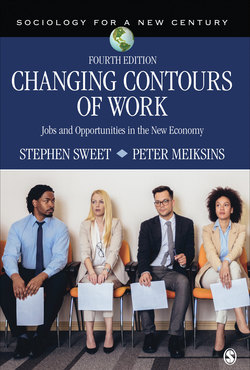Читать книгу Changing Contours of Work - Stephen Sweet - Страница 13
На сайте Литреса книга снята с продажи.
Exhibit 1.3 Emily: A Contract Worker Navigates Insecure Employment
ОглавлениеEmily is in her late forties and markets herself as a freelance editor/proofreader. While at one time she was a “regular employee,” the job that she previously held vanished when her employer relocated. Her path to becoming a contract worker was not an intended career path. It was a means of rescuing a career that was dislodged.
Emily currently works as an editor with two different employers, a large law firm and small publishing company. She is not considered to be a career employee at either of these companies, does not have a private office, and shares a cramped workspace with another employee. She is not included in many of the office social functions, and her level of involvement with other regular employees is quite restricted. Nonetheless, her job as a freelancer provides her considerably more flexibility than her coworkers, and this is something that she values. And, because she is skilled at her work, her compensation is comparable to what the regular employees make.
Because the terms of Emily’s employment rest on her employers’ interest in hiring her for subsequent work, she keeps watch for opportunities. She believes that her type of job, based on short-term agreements between employees and their employers, is the wave of the future. While she feels secure in knowing how to do her work, she has a constant sense of insecurity in that she does not know what the future holds for her.
Note: Based on Freelancing Expertise: Contract Professionals in the New Economy (pp. 2–3) by Debra Osnowitz, 2010, Ithaca, New York: ILR Press.
